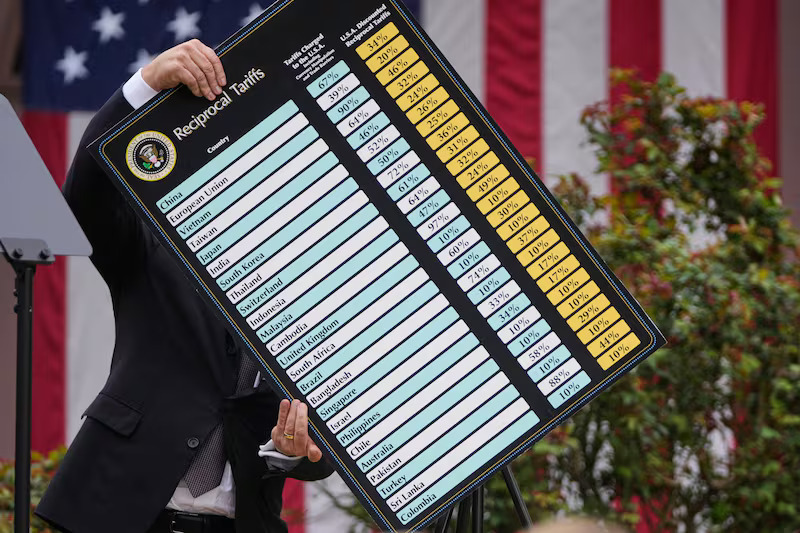
Stock market history was made on Thursday after President Donald Trump’s tariff announcement triggered worldwide financial chaos which triggered a massive market drop.
The Dow Jones Industrial Average experienced a 1,679-point decline of 4% yet the S&P 500 dropped 4.8% and the Nasdaq sank by 6%.
The market decline matched the degree of uncertainty seen in the 2020 COVID-19 market collapse as investors hustled to shield their investments from the impending damage.
The broad trade tariff announcement made by Trump containing minimum import taxes of 10% created massive turmoil on Wall Street. The forthcoming measures directed at both China and the European Union faced wide-scale economic warnings from different parties.
Numerous experts predicted U.S. economic decline to 2% with inflation reaching almost 5% because of the proposed tariffs that could trigger a long recession.
The magnitude of the announced tariffs caused investors to experience great anxiety because they exceeded market expectations.
These measures resembling those from nearly a century ago could trigger a price surge and profit reduction that would damage businesses and affect both businesses and households.

READ ALSO: GOP Senator Stands Firm on Controversial Comments to Fired Federal Worker
The stock market slump affected every sector but smaller U.S. companies recorded the most significant depreciation measured by the Russell 2000 index.
Quick reactions to the new tariff policies have created doubts about enduring economic equilibrium. Knowledgeable analysts expect that trade slowdowns will worsen inflation rates and create massive unemployment in addition to the current economic challenges.
Trump expressed confidence about the economic problems since he saw them as essential to create a new direction for American manufacturing.
The financial sector maintains intense observation of Federal Reserve’s interest rate policies because market participants expect central bank involvement to stabilize the economy. \The existing inflation dilemma may prevent the Federal Reserve from delivering necessary actions.





